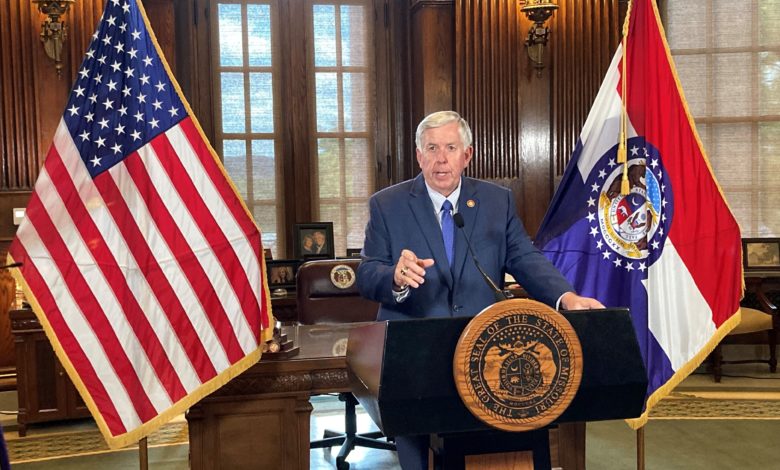States across the nation see a wave of tax cuts including Missouri and Arkansas

JEFFERSON CITY, Mo. (AP) — Stoked by the largest surplus in state history, Missouri’s Republican-led Legislature devised a $500 million plan to send one-time tax refunds to millions of households. In a shock to some, GOP Gov. Mike Parson vetoed it.
Parson’s objection: He wanted a bigger, longer-lasting tax cut.
“Now is the time for the largest income tax cut in our state’s history,” Parson declared as he called lawmakers back for a September special session to consider a $700 million permanent tax reduction.
Upon its likely approval, Missouri will join at least 31 states that already have enacted some type of tax cut or rebate this year — an astounding outpouring of billions of tax dollars back to the people. Idaho lawmakers are convening Thursday to consider more tax breaks, and Montana lawmakers also are weighing a special session for tax relief.
Flush with federal pandemic aid and their own surging tax revenue, states have cut income tax rates for individuals and businesses, expanded tax deductions for families and retirees, pared back property taxes, waived sales taxes on groceries and suspended motor fuel taxes to offset inflationary price spikes. Many also have provided immediate tax rebates.
Republicans and Democrats alike have joined the tax-cutting trend during a midterm election year.
Yet divisions have emerged about how far to go. While Democrats generally have favored targeted tax breaks and one-time rebates, some Republicans have pressed for permanent income tax rate reductions that could lower tax bills — and state revenue — for years to come. Parson describes it as “real, lasting relief.”
Some budget analysts warn that permanent tax cuts could strain states during a future recession. The U.S. economy has shrunk for two straight quarters this year, meeting one informal sign of a recession.
“Quite simply, relying on the current surplus to fund permanent tax changes isn’t fiscally sustainable, or responsible, and will ultimately require cuts to state services,” said Amy Blouin, president and CEO of the Missouri Budget Project, a nonprofit that analyzes fiscal policies.
For some states, the current surpluses are unlike anything they’ve previously seen.
The 2022 fiscal year, which ended June 30 for most states, marked the second straight year of large growth in tax collections after economic shutdowns triggered declines early in the coronavirus pandemic. Many states reported their largest-ever surpluses, according to the National Association of State Budget Officers.
“I don’t think there’s been a time in history where states are better equipped to ride out a potential recession,” said Timothy Vermeer, senior state tax policy analyst at the Tax Foundation, a Washington, D.C.-based think tank. “A majority, if not all, of the rainy day funds are in a really healthy position.”
Income tax rate cuts have passed in 13 states this year, already equaling last year’s historic total, according to the Tax Foundation. Republicans control the legislatures in all of those states except New York, where Democrats who wield power accelerated the timetable for a previously approved tax rate reduction.
Republican-led Arkansas was the most recent to take action during an August special session. A new law will speed up a gradual income tax rate reduction enacted last year and provide a one-time inflationary tax credit. Republican Gov. Asa Hutchinson described the $500 million package as “a transfer of wealth from the government to the taxpayer” that “could not have come at a more important time.”
Nationwide, inflation is at a 40-year-high, raising prices on most good and services and squeezing incomes.
At least 15 states have approved one-time rebates from their surpluses, including 10 led by Democratic governors and legislatures, four by Republicans and one — Virginia — with split partisan control.
Democratic-led California, which posted a record $97 billion surplus, is sending rebates of between $200 and $1,050 to individuals earning less than $250,000 annually and households earning less than $500,000.
All four GOP-controlled states providing rebates — Georgia, Indiana, Idaho and South Carolina — also made permanent income tax rate cuts.
Though often popular, tax rebates do little to fight inflation and “may actually be counterproductive” by enabling additional consumer spending on items in scarce supply and thus contributing to higher prices, said Hernan Moscoso Boedo, an economist at the University of Cincinnati.
Still, big surpluses coupled with inflation make rebates a tempting option for politicians, especially during an election year.



